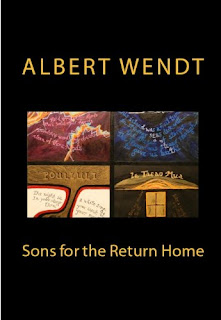DERIVED GRADE ASSESSMENTS
It is a difficult time for all students and teachers in Auckland right now. The lockdown (which started August 18) has extended itself into Term 4. Completing assessments and getting prepared for NCEA externals is the focus this term but doing this from home, in a lockdown, can be difficult. At this stage all Year 11, Year 12 and Year 13 students are slated to return to school in Week 2 Tuesday October 26. This is important as our students can use this time to continue working on assessments and complete derived grade assessments.
I have spent the day or so trying to figure how to offer a derived grade assessment that is relevant, meaningful and time efficient. The premise of the derived grade assessment is based on the NZQA NCEA English External Assessments. For both my Level 2 and Level 3 English classes, the study of written and visual texts was a priority in the learning program. We looked at a range of written and visual texts and explored each text through comprehensive text studies. I focused on 'knowing' and 'understanding' the text before we 'responded' to the text. Following the text studies my senior students worked on internal assessments and used the texts as a reference point for each internal. I am now planning on taking this as the basis for a derived grade assessment.
For my Level 2 English students the two derived grade assessments that I will be offering are:
For my Level 3 English students, the two derived grade assessments that I will be offering are:
Most of my students are working on their writing portfolio assessment (with many of them having already completed one written text) so the idea is that they complete this derived grade assessment and this will be assessed for both as a derived grade and as a second written text for their writing portfolio. I am hopeful that my students can engage with this and get it done over the next two weeks. Now more than ever, derived grade assessments are important as the nature of lockdown is proving to be something that can happen and make an impact on the learning. Derived grade assessments are important in that it acts as insurance for our students. Our department created derived grade assessment resources last year so that our students understood WHY they were doing it. I am going to use this again this term.
 |
| TC English Department Derived Grade Assessment Presentation (click on the image to access the presentation) |
With the return to school for senior students happening in Week 2, one thing that I am looking forward to reconnecting with the students. The pressure and work load on students to prepare for externals and complete internal assessments is at an all time high with the current lockdown forcing students to work independently from home for 7 weeks. Hopefully the time back in class will be a good opportunity to regroup and focus on finishing the work.
NIUEAN LANGUAGE WEEK 2021
Kia Tupuolaola e moui e Tagata Niue | May the Tagata Niue thrive
"
Kia tupuolaola e moui he Tagata Niue, reminds us of the importance of our Pacific languages and cultures and how they contribute to spiritual, emotional, physical and social wellness for prosperity and wealth in the home, community and nation. This year’s theme reflects the overarching 2021 Pacific Language Week theme of Wellbeing, by linking the importance of language to overall wellbeing." (Ministry for Pacific Peoples)
Celebrating languages is a beautiful thing to do. Over the duration of the lockdown, as a school, we have celebrated Tongan and Te Reo Maori language weeks online. As Term 4 has started, the Niuean Language week has helped kicked the term off. The theme for this year's NLW encompasses the importance of wellbeing - something that we hear about in the news especially with being in lockdown.
Our first online assembly for Term 4 was focused on celebrating Niuean Language Week. The student leadership team shared some useful words and a prayer in the Niuean language. One of my senior mentor teachers, former student of Tamaki College and fellow colleague in the English Department, Ms Francis Kolo, shared her expereinces with her Niuean language and culture and how it is has impacted her personal journey. Here are some highlights below.
 |
| Tau kupu Niue kua lata tonu ke fakaaoga | Useful/Everyday/Simple words |
 |
Tau kupu fakafeleveia | Useful words
|
 |
| Liogi | Prayer |
Former student and current teacher of English at Tamaki College, Ms Francis Kolo, shared her journey and what '
Kia Tupuolaola e moui e Tagata Niue' means to her. Francis opened up to the students about how she has experienced criticism from elders for not being fluent in her own language. She shared that "
Just because I don't know my language doesn't mean that I am not Niuean." This is something that definitely resonated with myself as I am sure with the students. She shared that the theme links in with well-being and here she explains how she has thrived and what keeps her grounded.
 |
| Ms Kolo shares her journey with Totara House |
 |
Ms Kolo shares her interpretation of the NLW theme.
|
















